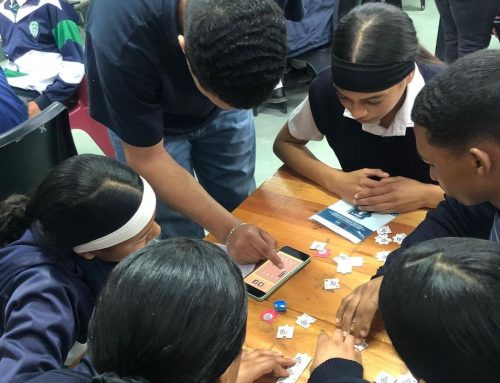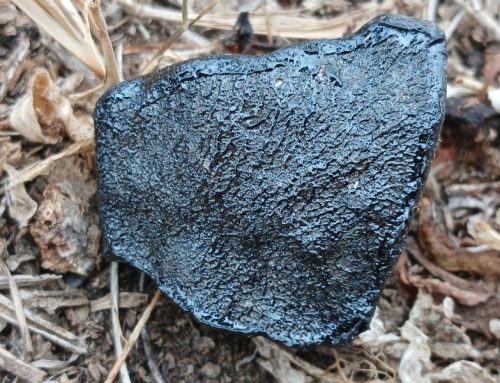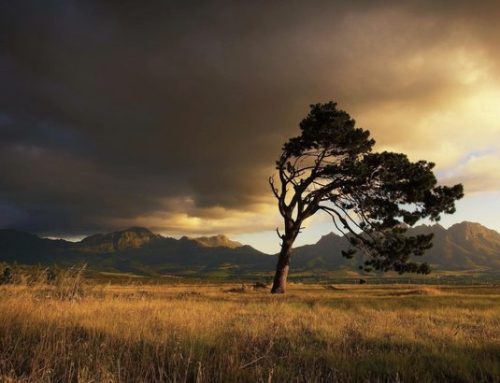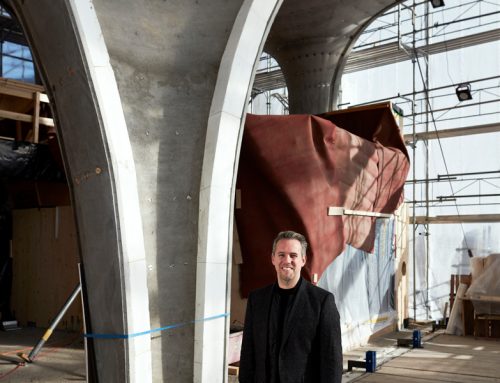 Oblivious to the precariousness of our place on the planet and on the human family tree, us ‘modern humans’ are the masters of the grandest, most misguided belief in our own invincibility.
Oblivious to the precariousness of our place on the planet and on the human family tree, us ‘modern humans’ are the masters of the grandest, most misguided belief in our own invincibility.
“We are tottering on the brink of extinction and still we don’t see the danger,” says Donald Johanson, one of the most eminent palaeoanthropologists of our time.
Johanson, who discovered our earliest hominid cousin, Lucy, in the Hadar region of Ethiopia in 1974, is the Director of the Institute of Human Origins at Arizona State University.
“The importance of Lucy (who lived 3.2-million years ago) is that she knew how to survive, while modern human beings do not,” he explains, holding a replica of her skull.
“Unlike us, Lucy was entirely integrated in the natural world and her life was focused on survival. She was alert and constantly aware of life-threatening dangers like sabre tooth cats.”
Our brains are far bigger than Lucy’s, yet we are oblivious to the life-threatening dangers we are facing as a consequence of the self-propelled disintegration of our natural world. It’s a tragedy in the making. A tragedy in which, we, the most intelligent life form that we know of, destroy our own species and our planet with us.
“Right now we are hurtling towards self-destruction because we have forgotten that we are a product of the natural world and that we depend on it for our survival,” says Johanson whose career in human origins was inspired by a book by Thomas Huxley titled ‘Man’s Place in Nature’.
“The problem with our planet is that most people think that drinking coffee in the morning makes us human. We feel so secure in our concrete jungles that we have completely forgotten we are indebted to the natural world for how we came to be.”
This separation, he explains, has developed through what we call ‘civilisation’. Such is our reverence for civilisation that we believe biology can be discarded once culture comes through the door.
“What this has done is create such a lack of respect for the natural world that we believe we can take what we like from it, without consequence. With 6.5-billion people taking what they like, we are swiftly and indisputably destroying an extraordinary natural system or web of life, which, as we know from palaeontology, took billions of years to develop.”
The web of life on our planet mirrors a spider web, where, if you touch or damage any part of it, it resonates throughout the web and the spider responds. In the same way, if people destroy the rainforests of West Africa, the whole planet experiences the effect because it upsets the rhythm and order of a natural system where the whole is a delicate interplay between the sum of its parts.
What happens anywhere else in the world should impact on us as directly as the spider experiences its web. But it doesn’t because we have lost touch with the natural world and our origin.
“This is extraordinarily dangerous and there will be very serious repercussions for the human species unless we find it in ourselves to rapidly restore our reverence for the natural world,” says Johanson. “The natural world can only take so much before it collapses. And when this happens…put it this way, the latest iPhone or flat screen TV becomes instantly immaterial when you can’t feed yourself and when pestilence comes knocking at your door.”
By contrast, not even the earliest of our ancestors with their small brains and sloping foreheads were so shortsighted as to destroy the environment that sustained them.
Shortsightedness comes with the development of what we call the ‘ego’, Johanson explains. “That self-focused modern human characteristic which encourages us to spend most of our time thinking about ourselves. How rich and great we are or would like to be; and what sort of iPhone, house, car, husband or wife we would like, to complete our lives.
The fact that cousin Lucy didn’t think about all these things is part of why she survived for so long. “Her species, Australopithecus afarensis, survived for 800 000 years, eight times longer than us Homo sapiens have survived because she was at one with nature,” Johanson explains.
Like an intelligent chimpanzee, she didn’t think about yesterday or tomorrow, she behaved instinctively and was instinctively alert to threats to her existence.
Without this innate sense of self-preservation, Lucy and the rest of our upright, tool-making ancestors, would not ever have made it out of Africa.
In the pursuit of understanding our origins, we have made giant leaps in our understanding of ‘from whence we come’. But, perhaps more importantly to our survival today, Johanson explains, is that we need to use this knowledge to work out where we are headed and how to try and secure our future survival.
The pursuit of our human origins should also remind us that we are a work in progress. “We are far from a state of having arrived,” he explains. “In fact I don’t think that we can call ourselves human yet (especially since Homo sapiens is Latin for ‘wise men’) and we might cause our own extinction before we get there.
“What we do have is the ability to make the right choices. We belong on this planet, as much as the Snowy Owl or the Leopard belongs here, but the difference is that we are the guardians of the natural world. We have the power to take charge and stop the destruction of the natural environment of our planet. The responsibility is ours and we need to take this very, very seriously.”




